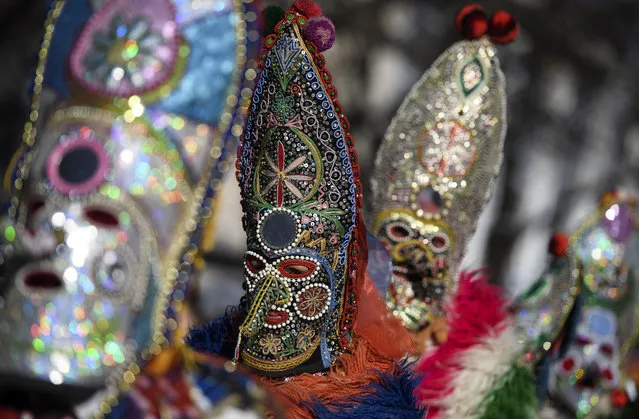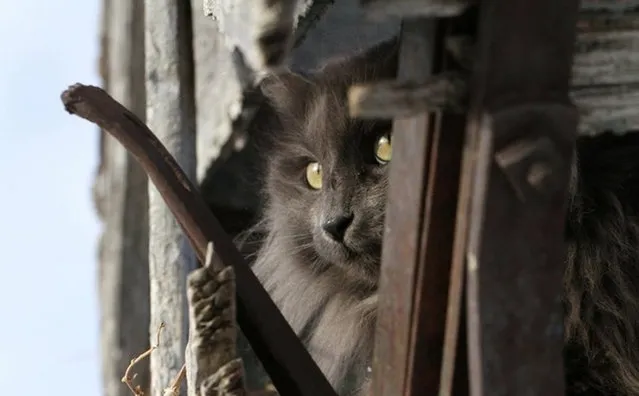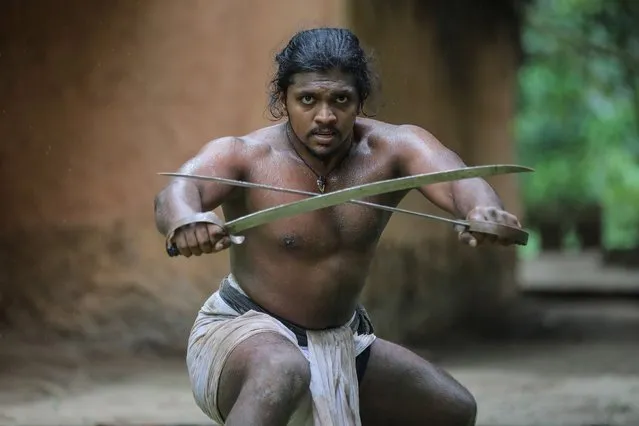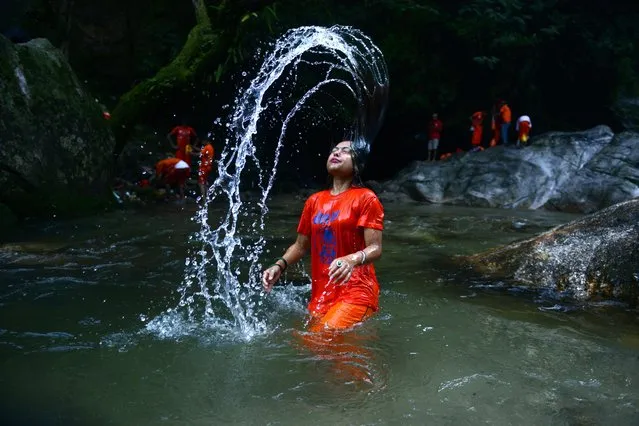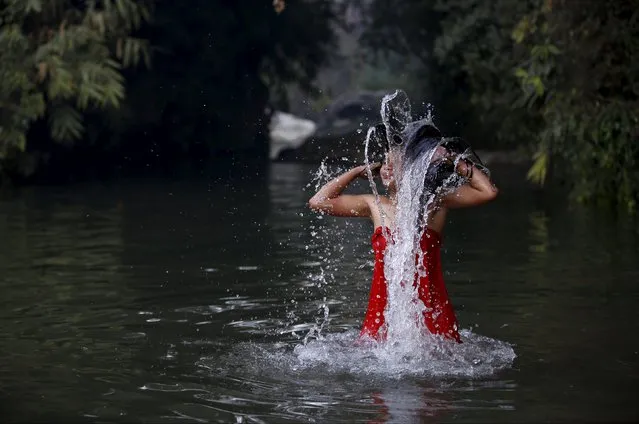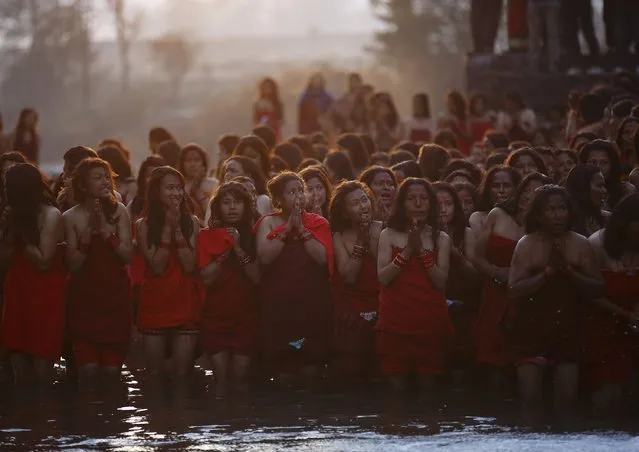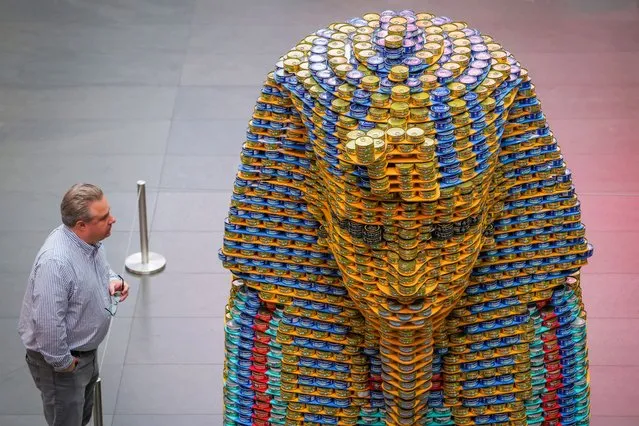
A person looks at a giant sculpture depicting the funerary mask of the pharaoh Tutankhamun, titled “A Meal Fit for a King” and created by Microdesk, Inc. made out of 8,300 cans of tuna which will be donated to local food banks as part of the Canstruction exhibition in Manhattan, New York City, U.S., November 11, 2022. (Photo by Andrew Kelly/Reuters)
21 Nov 2022 06:26:00,post received
0 comments


